Perek Shira – Chapter 5: Lions and Wolves and Bears (Oh, My!)
בְּהֵמָה דַּקָּה טְהוֹרָה אוֹמֶרֶת מִי כָמֹכָה בָּאֵלִם יי מִי כָּמֹכָה נֶאְדָּר בַּקֹּדֶשׁ נוֹרָא תְהִלֹּת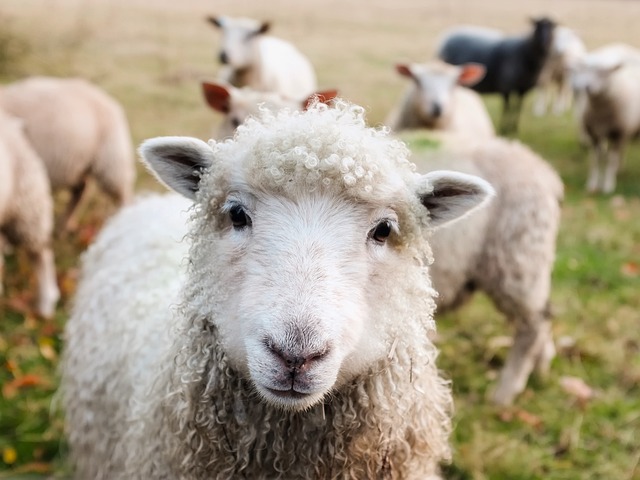
The small kosher animal (like the sheep and the goat) says, “Who is like You among the mighty, Hashem? Who is like You, majestic in holiness, awesome in praise, performing wonders!” (Exodus 15:11)
The Talmud in Gittin suggests that “Who is like You among the mighty (eilim)” could also be read as “Who is like You among the silent (ilmim).” This is because God hears the abuse directed at Him by blasphemers but remains silent.
בְּהֵמָה גַּסָּה טְהוֹרָה אוֹמֶרֶת הַרְנִינוּ לֵאלֹהִים עוּזֵּנוּ הָרִיעוּ לֵאלֹהֵי יַעֲקֹב
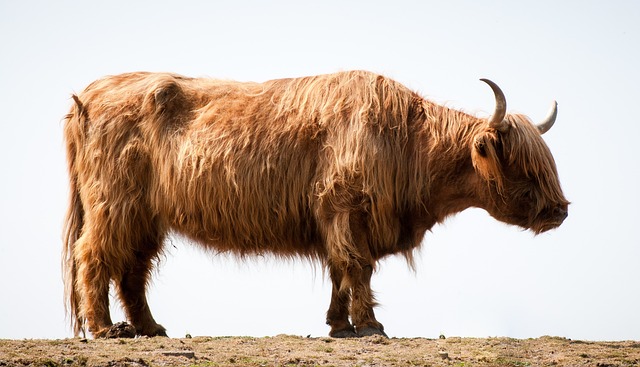
This psalm is the Song of the Day for Thursday. It was so instituted because birds and fish were created on Thursday to praise God, as per Talmud Rosh Hashana 31a.
בְּהֵמָה דַּקָּה טְמֵאָה אוֹמֶרֶת הֵיטִיבָה יְיָ לַטּוֹבִים וְלִישָׁרִים בְּלִבּוֹתָם
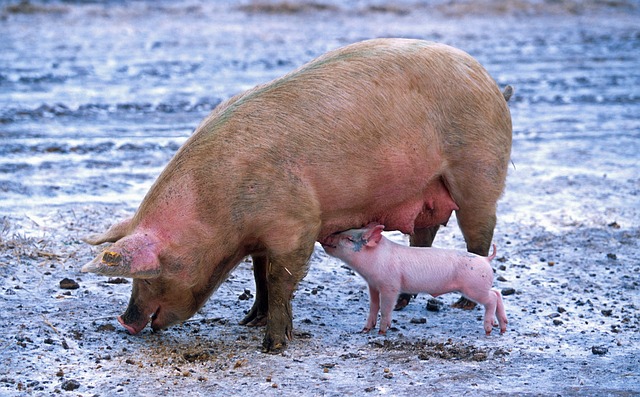
The ibn Ezra explains the importance of being upright in one’s heart: a person’s words and deeds are like a building but the honesty of one’s heart is like its foundation.
בְּהֵמָה גַּסָּה טְמֵאָה אוֹמֶרֶת יְגִיעַ כַּפֶּיךָ כִּי תֹאכֵל אַשְׁרֶיךָ וְטוֹב לָךְ
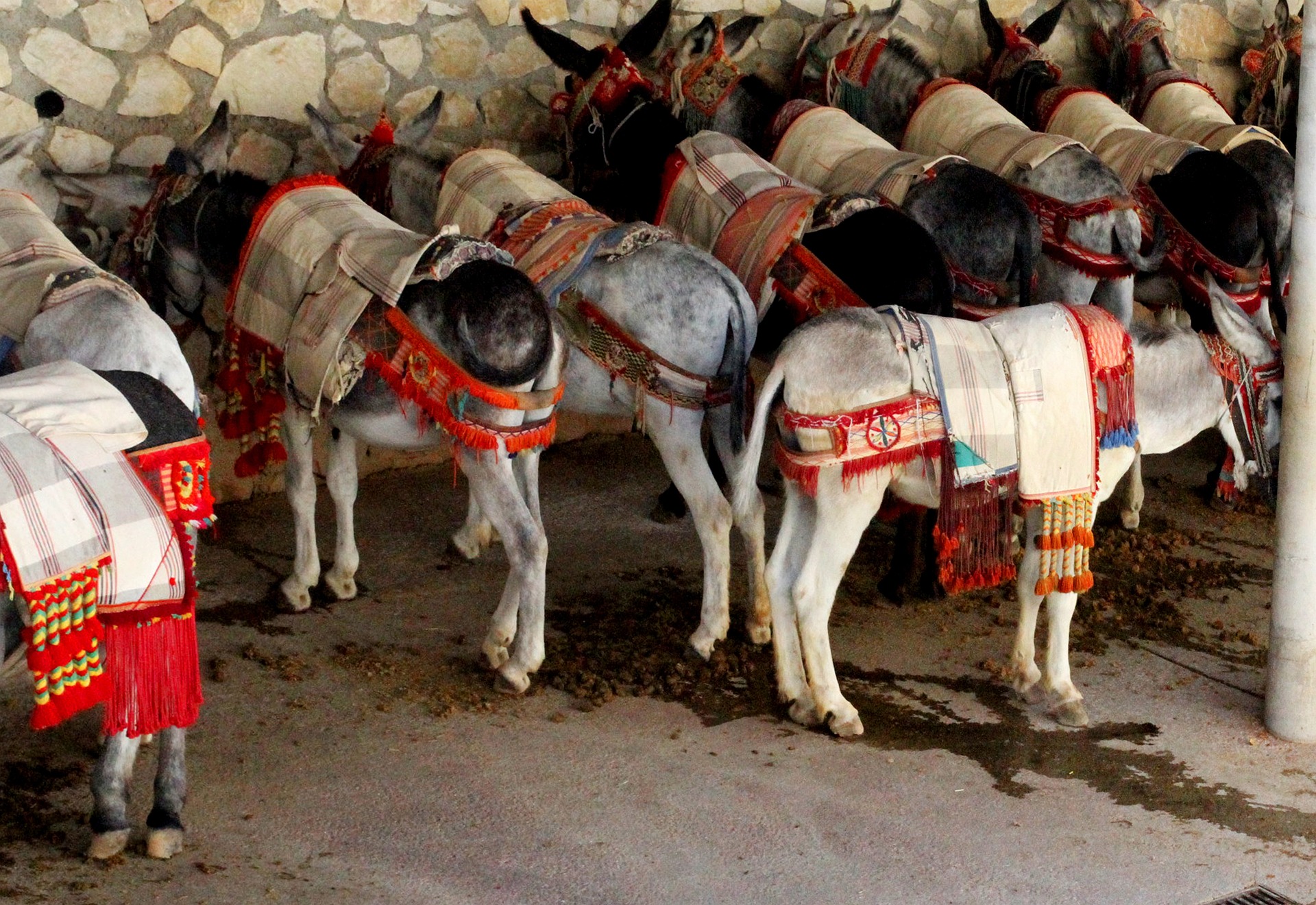
The Talmud in Brachos 8a says that it’s better to be a hard worker than to be pious. Psalm 112 tells us that a pious person is fortunate, but Psalm 128 tells us that one who enjoys the fruits of his own labors is not only fortunate (in this world) but also that things will be good for him (in the Next World).
גַּמַּל אוֹמֵר יי מִמָּרוֹם יִשְׁאָג וּמִמְּעוֹן קָדְשׁוֹ יִתֵּן קוֹלוֹ שָׁאֹג יִשְׁאַג עַל נָוֵהוּ
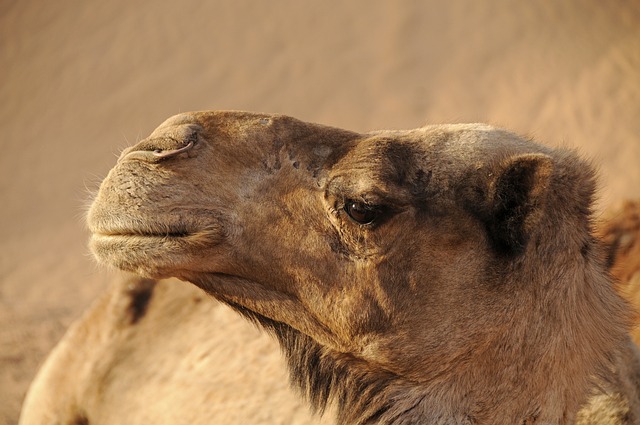
The Metzudas Dovid explains that roaring over His abode is a clarification of God roaring from His habitation. Specifically, He is lamenting the necessary decree to destroy Jerusalem and the Temple.
סוּס אוֹמֵר הִנֵּה כְעֵינֵי עֲבָדִים אֶל יַד אֲדוֹנֵיהֶם כְּעֵינֵי שִׁפְחָה אֶל יַד גְּבִרְתָּהּ כֵּן עֵינֵינוּ אֶל יי אֱלֹהֵינוּ עַד שֶׁיְּחָנֵּנוּ
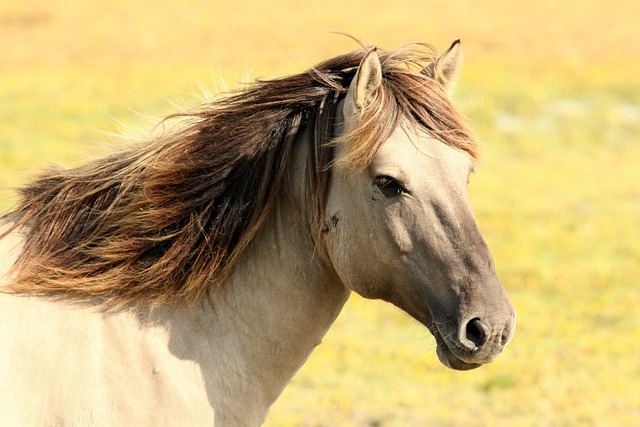
Based on this verse, the Mishneh Torah (Hilchos Avadim 9:8) codifies as law that a person should not overburden even his Canaanite servants. One should allow his servants to eat all the same food that he himself eats, and he should let his servants eat first.
פֶּרֶד אוֹמֵר יוֹדוּךָ יְיָ כָּל מַלְכֵי אָרֶץ כִּי שָׁמְעוּ אִמְרֵי פִיךָ
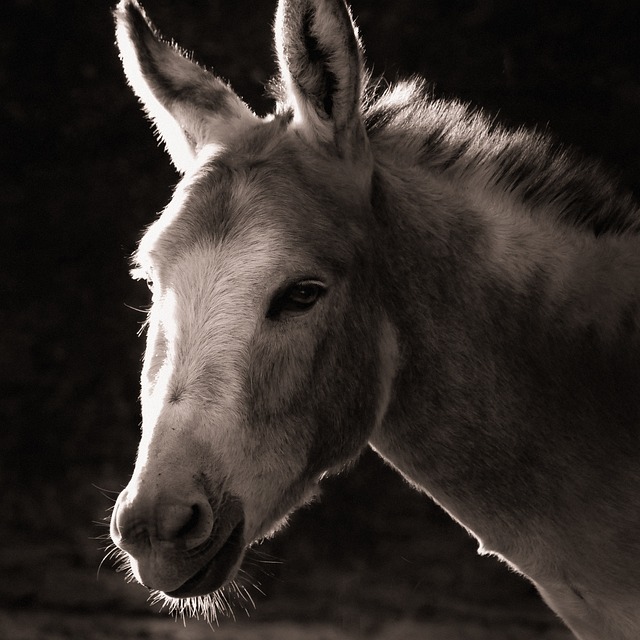
Midrash Shocher Tov explains that a human king has all sorts of counts, dukes and viceroys to assist him in ruling his kingdom, in exchange for which they receive a share of the honor that would otherwise be the king’s alone. This is not the case with God; He rules alone and therefore only He should be praised,
חֲמוֹר אוֹמֵר לְךָ יְיָ הַגְּדֻלָּה וְהַגְּבוּרָה וְהַתִּפְאֶרֶת וְהַנֵּצַח וְהַהוֹד כִּי כֹל בַּשָּׁמַיִם וּבָאָרֶץ לְךָ יְיָ הַמַּמְלָכָה וְהַמִּתְנַשֵּׂא לְכֹל לְרֹאשׁ
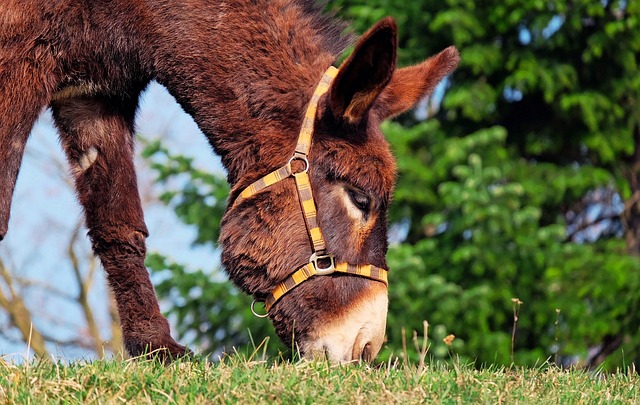
This verse quotes King David. According to the Radak, David is saying that all the greatness, all the might all the military victory and all the splendor that he achieved is really God’s, because all these things came from Him. Similarly, all the wealth that David acquired in battle and dedicated to God was really God’s anyway.
שׁוֹר אוֹמֵר אָז יָשִׁיר משֶׁה וּבְנֵי יִשְׂרָאֵל אֶת הַשִּׁירָה הַזֹּאת לַיי וַיֹּאמְרוּ לֵאמֹר אָשִׁירָה לַּיְיָ כִּי גָאֹה גָּאָה סוּס וְרֹכְבוֹ רָמָה בַיָּם
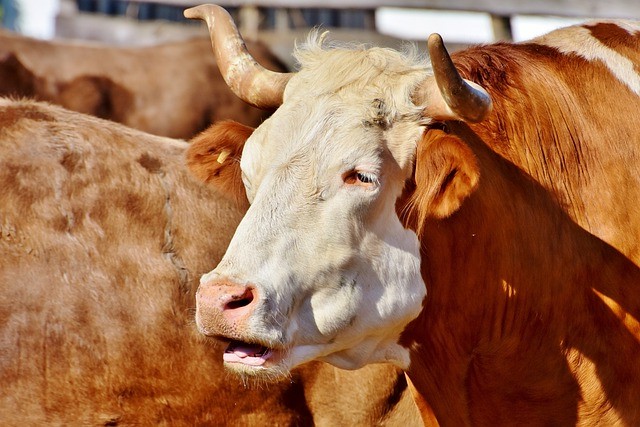
The Mishna in Sotah (5:4) points out that the word “saying” in “they said, saying” is superfluous. So why does it say “saying?” This teaches that Moshe would sing a line and the people would repeat it, responsively, the same as we do when reciting Hallel.
חַיּוֹת הַשָּׂדֶה אוֹמְרִים בָּרוּךְ הַטּוֹב וְהַמֵּטִיב
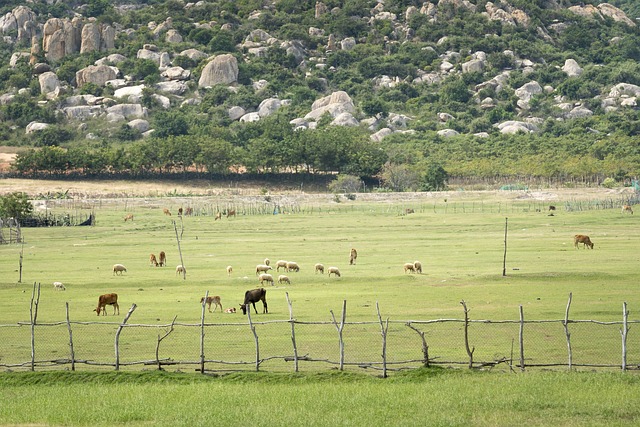
Proverbs 25:25 says, “Cold water to a weary soul and good news from a distant land.” What do these things have in common? Bereishis Rabbah (57) explains that just as we recite HaTov v’haMeitiv – the blessing that God is good and does good – over good news, so too we recite it over much-needed rain.
צְבִי אוֹמֵר וַאֲנִי אָשִׁיר עֻזֶּךָ וַאֲרַנֵּן לַבֹּקֶר חַסְדֶּךָ כִּי הָיִיתָ מִשְׂגָּב לִי וּמָנוֹס בְּיוֹם צַר לִי

According to the Midrash in Shemos Rabbah (23), this refers to future events. “I will sing” of God’s strength over Edom (i.e., Rome), and “I will rejoice” in God’s kindness towards us in the war of Gog and Magog (which may precede the messianic era).
פִּיל אוֹמֵר מַה גָּדְלוּ מַעֲשֶׂיךָ יְיָ מְאֹד עָמְקוּ מַחְשְׁבֹתֶיךָ
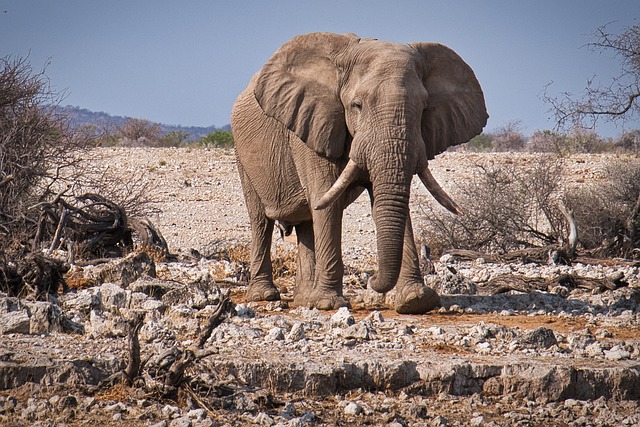
According to the Malbim, God’s extremely profound designs refers to the way He runs the world with providence, making it look like “nature.” This gives people free will so that they can be held responsible for their actions. (If God’s influence were too obvious, such as instant punishment for misdeeds, people would have no real choices.)
אַרְיֵה אוֹמֵר יְיָ כַּגִּבּוֹר יֵצֵא כְּאִישׁ מִלְחָמוֹת יָעִיר קִנְאָה יָרִיעַ אַף יַצְרִיחַ עַל אֹיְבָיו יִתְגַּבָּר
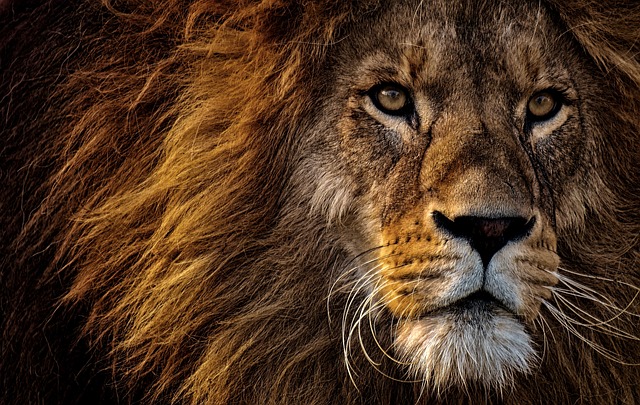
Avos d’Rabbi Nosson (chapter 2) explains that God’s “roar” isn’t really like that of a warrior. In truth, it exceeds the combined roars of all the warriors in the world. However, the prophets restrained their words and only told us things in ways that most people could visualize.
דֹּב אוֹמֵר יִשְׂאוּ מִדְבָּר וְעָרָיו חֲצֵרִים תֵּשֵׁב קֵדָר יָרֹנּוּ ישְׁבֵי סֶלַע מֵרֹאשׁ הָרִים יִצְוָחוּ יָשִׂימוּ לַיהוָה כָּבוֹד וּתְהִלָּתוֹ בָּאִיִּים יַגִּידוּ
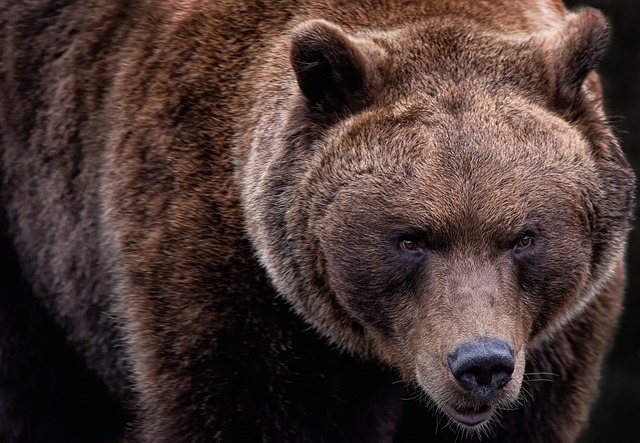
Most commentators understand “the inhabitants of rock” to refer to people who build their homes in rocky places, but Rashi cites the Targum Yonasan, who understands it to mean that the dead will praise God at the time of their revival, when they are freed from their rocky abodes.
זְאֵב אוֹמֵר עַל כָּל דְּבַר פֶּשַׁע עַל שׁוֹר עַל חֲמוֹר עַל שֶׂה עַל שַׂלְמָה עַל כָּל אֲבֵדָה אֲשֶׁר יֹאמַר כִּי הוּא זֶה עַד הָאֱלֹהִים יָבֹא דְּבַר שְׁנֵיהֶם אֲשֶׁר יַרְשִׁיעֻן אֱלֹהִים יְשַׁלֵּם שְׁנַיִם לְרֵעֵהוּ
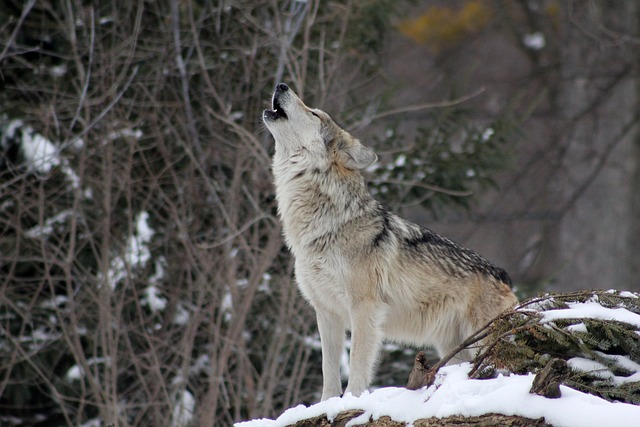
The Rambam, in his Guide for the Perplexed (II, 6:1), uses this verse as an example of where the word “elohim” refers to judges. In other places, it refers to angels. When God is called “Elohei ha’elohim,” it means that He is Judge over the majestic angels, not that He is Judge over lowly human justices. (Saying that God is superior to humans would be rather faint praise.)
שׁוּעַל אוֹמֵר הוֹי בֹּנֶה בֵיתוֹ בְּלֹא צֶדֶק וַעֲלִיּוֹתָיו בְּלֹא מִשְׁפָּט בְּרֵעֵהוּ יַעֲבֹד חִנָּם וּפֹעֲלוֹ לֹא יִתֶּן לוֹ
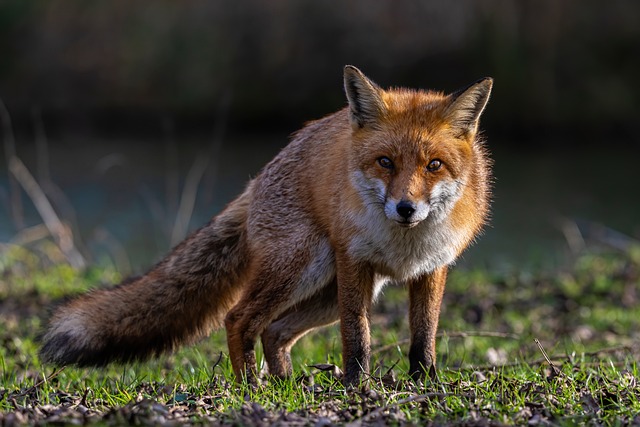
The Zohar (Tazria 173) explains that harmful forces flee from a place where righteousness exists. However, whichever force gets to a place first acquires it. If righteousness gets there first, great, but if not… look out!
זַרְזִיר אוֹמֵר רַנְּנוּ צַדִּיקִים בַּיְיָ לַיְשָׁרִים נָאוָה תְהִלָּה

According to Machzor Vitry (Hilchos Shabbos 139:1), when the righteous experience God, they are immediately inspired to sing praises to Him. We see this from our forefather Yitzchak who, when he was bound on the altar, had a vision of the heavens opening and sang.
עַכְבָּר אוֹמֵר אֲרוֹמִמְךָ יְיָ כִּי דִלִּיתָנִי וְלֹא־שִׂמַּחְתָּ אֹיְבַי לִי

The Radak explains what King David is saying here: “If You had not raised me up and forgiven me, my enemies would have rejoiced because of me. Now,” (since God has raised and forgiven David), “You have not caused them to rejoice; You have caused them to mourn.”
חָתוּל אוֹמֵר אִם־תַּגְבִּיהַּ כַּנֶּשֶׁר וְאִם־בֵּין כּֽוֹכָבִים שִׂים קִנֶּךָ מִשָּׁם אוֹרִֽידְךָ נְאֻם־יְיָ
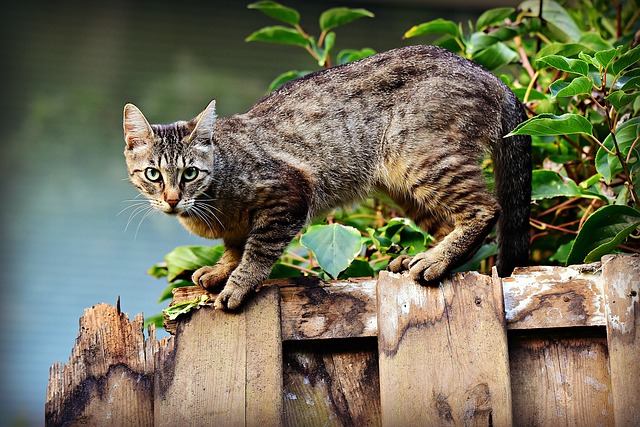
The prophet Obadiah was a convert who prophesied about the nation of Edom, the descendants of Esau. Based on this verse, the Talmud Yerushalmi (Nedarim 3:8) says that in the future, Esau will wrap himself in his tallis and try to sit among the righteous, only to be expelled by God. (That the righteous are compared to stars is explicit in Daniel 12:3.)
וּכְשֶׁמַגִיעוֹ אוֹמֵר אֶרְדּוֹף אוֹיְבַי וְאַשִּׂיגֵם וְלֹא־אָשׁוּב עַד־כַּלּוֹתָם
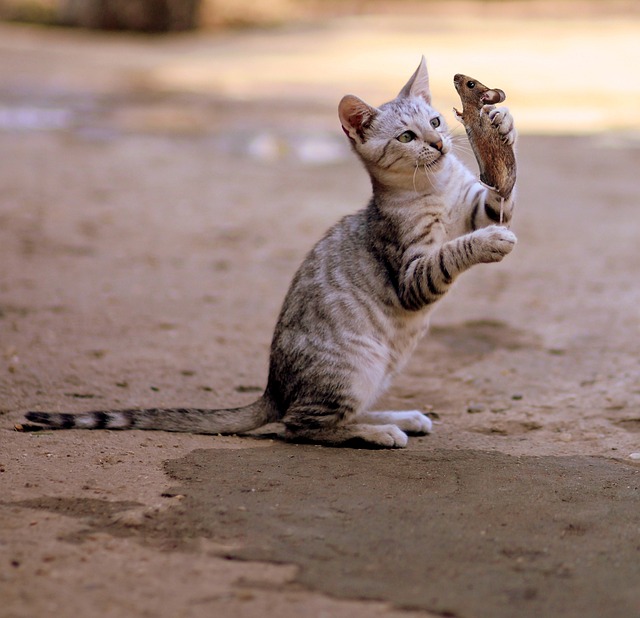
The Mesillas Yesharim (chapter 10) says that David could only achieve this degree of success because he had mastered the trait of spiritual cleanliness. Other righteous kings like Asa and Chizkiyahu could not request such a gift from God because they had not achieved David’s level in this trait.
וְעַכְבָּר אוֹמֵר וְאַתָּה צַדִּיק עַל כׇּל־הַבָּא עָלַי כִּי־אֱמֶת עָשִׂיתָ וַאֲנִי הִרְשָֽׁעְתִּי
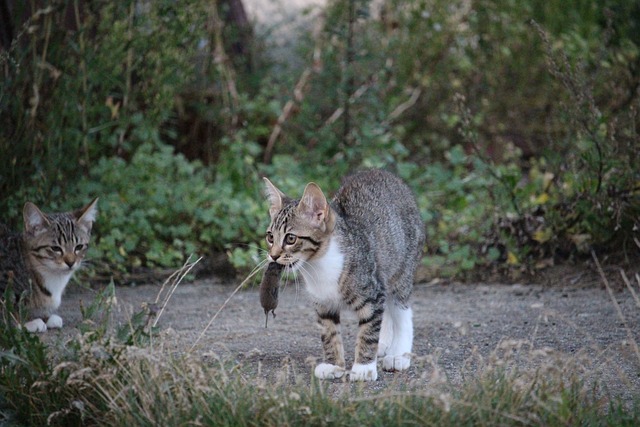
The Ramban on parshas Noach (Genesis 6:9) uses this verse in explaining Noah’s righteousness. Since he was perfectly righteous, Noah was worthy to be saved from the flood without any punishment at all. This is unlike those who act evilly, whom God punishes in truth. 42:11-12)
